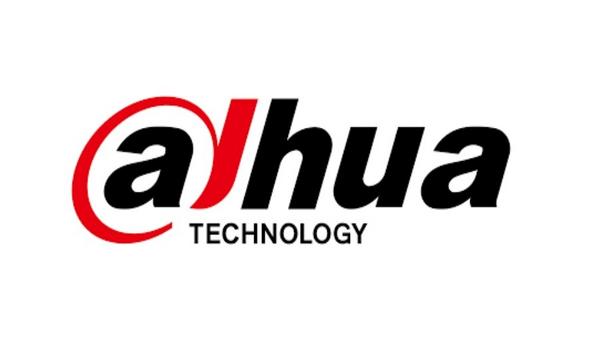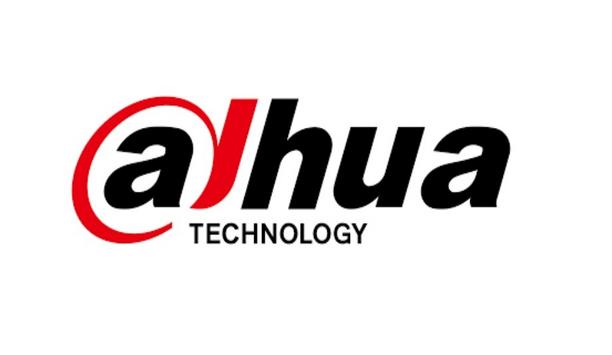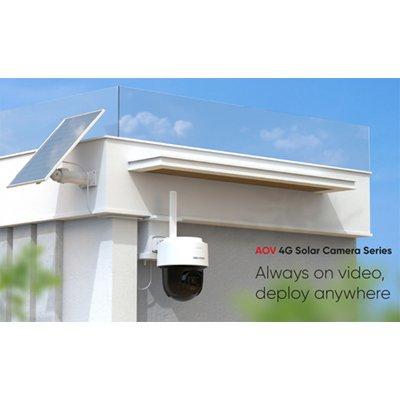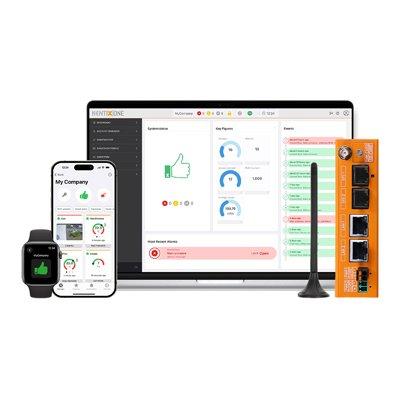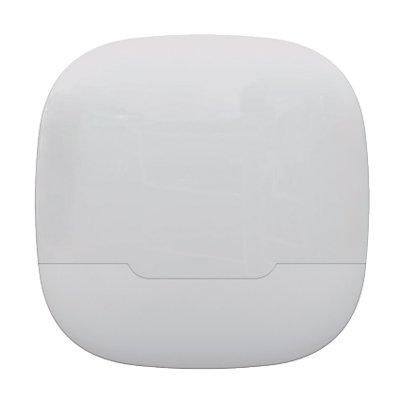With recent advancements in cloud technology and the increasing demand for remote work, more and more organisations and businesses consider migrating their physical infrastructure and video security into the cloud.
The Video Surveillance Report 2020 from IFSEC Global revealed that 44% of security professionals are now using cloud-based tech in their surveillance systems. By storing data in the cloud (rather than on-site equipment), users can remotely access, preview/playback their video footage, and manage related devices from anywhere via the internet.
Benefits of cloud-based solutions
Due to the numerous benefits of cloud technology, cloud-based solutions like Video Surveillance as a Service (VSaaS) are evolving rapidly, with increasing popularity among Small and Medium-sized Business (SMB) users and organisations seeking to upgrade their traditional server-based video security systems.
According to Marketsandmarkets, the VSaaS market is expected to grow from USD 2.2 billion in 2020 to USD 4.7 billion by 2025, at a CAGR of 16.0% between 2020 and 2025. These data suggest that this kind of cloud-based video monitoring solution is set to accelerate in the coming years.
VSaaS: An ideal choice for SMB
VSaaS's strong scalability allows SMB to quickly expand their solution based on their business development needs
The platform-centric VSaaS greatly reduces user costs, simplifies application management, and makes surveillance monitoring infrastructure more flexible and extensible. It is more cost-effective than traditional video security solutions because users can share costs over the life of the contract and only pay for the services they use.
For small and medium-sized enterprises that lack IT construction funds and professional personnel, VSaaS can help them quickly build and configure their systems, as well as operate and maintain independently and conveniently without the hassle of installing an on-site server. Moreover, its strong scalability allows them to quickly expand their solution based on their business development needs.
Dahua COS cloud platform
After learning about VSaaS, users might be thinking now: “Which VSaaS should I choose?” Well, they can try Dahua’s brand new COS Cloud Platform and see for themselves. It offers a confluent, cloud-based service system that allows users to manage on-site devices and enjoy a full range of services.
To enlighten with more info about it, the following are some advantages of the Dahua COS Cloud Platform and how it can maximise business opportunities and create more value for installers and end-users:
1) Unified multi-system management
COS Cloud Platform provides installers 24/7 remote problem diagnosis and repair, alarm operation, etc.
In addition to centralised video management, VSaaS also provides alarm management, device operation, and maintenance as well as other services. As such, the Dahua COS Cloud Platform is an aggregated platform consisting of different devices such as Dahua IPC, NVR, video intercom, access control, alarm products, etc.
It allows users to manage on-site devices and enjoy a full range of services anytime, anywhere. It also provides installers with convenient solutions including 24/7 remote problem diagnosis and repair, alarm operation, cloud storage service, etc.
2) Easy installation and maintenance
One major benefit of a cloud platform is its simplified device configuration, operation, and maintenance, which greatly help installers save time and costs. It also provides an intuitive web portal and mobile app for installers to conveniently manage customers and devices.
The Dahua COS Pro app allows installers to do an on-site installation without always bringing a laptop. Installers can log in to the device’s web page to do all of the configurations remotely through the COS Pro web portal. Various devices can be added to the platform, which can then be configured by batch.
3) Remote problem diagnosis and repair
Device health management has never been this simple and convenient with the Dahua COS Platform. When a device fails, a push notification will pop up immediately on both the dashboard and mobile app, allowing users to locate the issue and solve it remotely.
The system will also automatically locate the problem and provide possible solutions to users, guiding them to rectify the issue step by step. Most of the fault problems can be solved remotely, thus greatly saving time and money.
4) Guaranteed security and reliability
It follows the top security protocols and best practices and implements high privacy protection standards
While VSaaS is gradually receiving acceptance in the industry, data processed and stored in the cloud still raise people’s concern about data security.
The Dahua COS Platform is based on the infrastructure developed by Amazon Web Services (AWS), one of the world’s pioneering cloud computing vendors. It strictly follows the industry’s top security protocols and best practices and implements high privacy protection standards.
5) New business mode for profit growth
The bulk configuration, device maintenance, and alarm operation of cloud platforms provide new opportunities for installers and service providers, helping them to improve their relationship with end-users and realise rapid profit growth.
Aside from traditional solution delivery and device installation, installers can also provide additional services for end-users including 24/7 remote diagnosis, remote fault treatment, alarm operation, and more.
From facial recognition to LiDAR, explore the innovations redefining gaming surveillance



